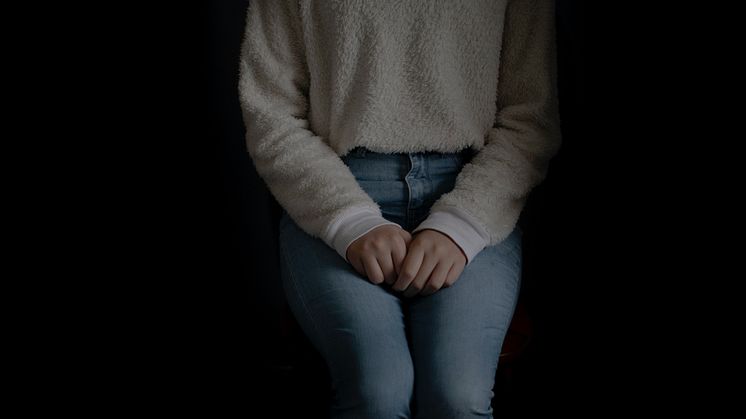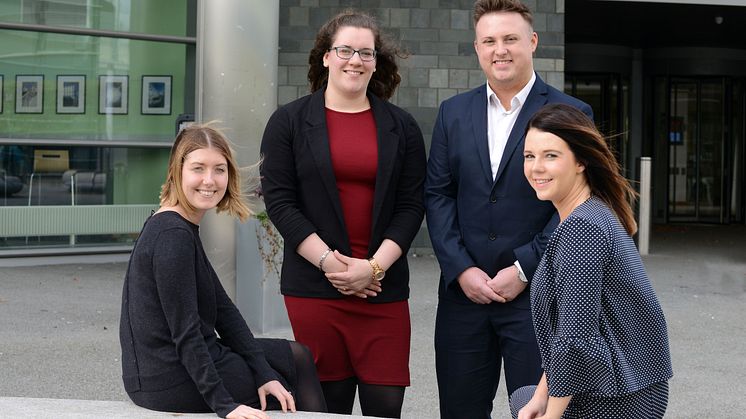
Press release -
Gender-based violence during lockdown: media reports may have missed the true picture
The ability of gender-based violence victims to access support services during the Covid-19 lockdown has not been accurately portrayed in the media, with potentially damaging consequences, according to new research.
Within days of lockdown restrictions coming into force in the UK in March this year, reports began circulating in the media of a huge rise in demand for telephone helpline services provided by charities working with victims of gender-based violence.
However, research by academics at Northumbria University reveals that, while some services did experience an increase in calls, around twice as many actually reported an initial drop in contact from service users.
This suggests that, despite helplines remaining open during lockdown, many victims may have found themselves unable to access this support.
The research team based at Northumbria Law School, comprising of Ana Speed, Callum Thomson and Kayliegh Richardson, believe inaccurate reports in the media about the demand for support services could have negative consequences, especially given a potential second peak and increasing local lockdowns now being faced across the UK.
As they explain: “The over simplistic message we saw portrayed in the media, that there had been a dramatic increase in calls to services supporting victims of gender-based violence, is potentially damaging as it may lead the public to disengage if they believe that all victims are able to seek help easily.
“It might also lead to victims to believe that they might not be able to access services which are portrayed as already being inundated with enquiries.
“We know many charities and support services have seen a drop in funding during lockdown and ensuring a more balanced and accurate approach to reporting is important to ensure much-needed support from the public and other funders in future, especially during any subsequent lockdowns.”
A questionnaire devised by the team of researchers was completed by 51 organisations working to support victims of gender-based violence, including those specialising in supporting black and minority ethnic victims, male victims and LGBT victims.
The respondents varied in size and geographical presence, from large commissioned organisations with a national offering, to small services and those located in rural settings.
The purpose of the study was to examine the impact of Covid-19 on the ability of victims of gender-based violence to access justice.
The main findings of the research were:
- Eleven organisations (21%) reported an increase in calls/reports. Quoted increases ranged from 25% to 120% which is broadly in line with the statistics which have been cited in the media.
- In contrast, 21 of the responding organisations (41%) had experienced a decrease in calls/reports. These organisations did not state that this was because abuse had decreased during lockdown. Instead, they considered that victims faced increased barriers to seeking support even though helplines remained open.
- 84% of the respondents reported providing a telephone helpline or online facility for victims of GBV. Importantly, none of the respondents indicated that they had closed their helplines as a result of Covid-19. In contrast, a number of organisations stated that they had increased the capacity of their helplines by extending the hours/days of service.
- 78.8% of respondents had withdrawn or delayed services. The main services which had been postponed or cancelled were fundraising events, community-based educational activities, face-to-face support groups and therapeutic work for adults, children and young people. Whilst many services were moved online, inevitably this was not possible for all services. Given the appreciation that children can experience ‘short and long term cognitive, behavioural and emotional effects as a result of witnessing domestic abuse’ it is concerning that many of the services which were directed at children and young people had to be withdrawn completely.
- 57.7% of the respondents offered a refuge service. It was reassuring that in all cases, existing occupants were able to remain in the refuge accommodation, however, 26.7% of those respondents had closed their doors to new entrants. This was either as a result of the lockdown measures or because they were already at capacity. Closing refuges reduces the availability of accommodation for victims fleeing abuse during the lockdown. The number of refuge bed spaces in England is currently 30% below the number recommended by the Council of Europe.
- Over 61% of the respondents reported providing additional services. This included social support (providing practical assistance such as food parcels, collecting prescriptions, paying emergency housing costs for families and providing toy boxes to children); community resources and systems change work (developing blogs, preparing information packs for schools and delivering training to individuals and organisations who may come into contact with victims during the lockdown) and supportive counselling (by moving permitted services online, expanding channels of communication including through social media, text chat rooms and live chat services and by extending the availability of these services).
- 78.4% reported receiving no additional funding over and above that already being provided prior to the outbreak to keep their services running. Of those services that had received additional funding in this UK wide study, there is no national or regional consistency evident from the responses, with the responses indicating somewhat of a postcode lottery for funding allocation.
- Several of the respondents identified receiving non-financial support from various channels to help run their services and refuges. There was no evidence that this support had emanated from the government. Instead, references were made to supermarkets providing food for the services’ clients, funders extending funding periods, newspapers offering free/discounted advertising space and donated items of food and equipment.
- 78.4% of the organisations that responded to the survey usually provide support to victims of GBV whilst at court, but only 17 (32.7%) were continuing to provide this support during the outbreak. Of the organisations who continued to provide this service, many raised concerns about the associated delay in criminal trials being heard. Many of the organisations reported assisting victims with the virtual family court process, but there were large discrepancies in their reports of how hearings were now taking place, pointing to a possible inconsistency in approach across the UK.
Speaking about the findings, the researchers said financial support for gender-based violence services was urgently required if such organisations were to survive.
The team explains: “We hope these findings dispel reports that all GBV support services are facing an unprecedented increase in demand for their services during this time.
“Our findings indicate that whilst services were able to demonstrate resilience in the weeks following the initial lockdown measures, many of those which responded are facing tough times ahead.
“This is for a variety of reasons including concerns about staff and volunteer retention; loss of funding; increased administration; resourcing difficulties in moving vital services online and delivering services in a safe and effective manner.
“If the government fail to take the action required now, many organisations will not be able to withstand the coming months and the government’s own message of ‘#YouAreNotAlone’ will be considerably undermined.”
Topics
Categories
Northumbria is a research-rich, business-focused, professional university with a global reputation for academic excellence. Find out more about us at www.northumbria.ac.uk --- Please contact our Media and Communications team at media.communications@northumbria.ac.uk with any media enquiries or interview requests ---







